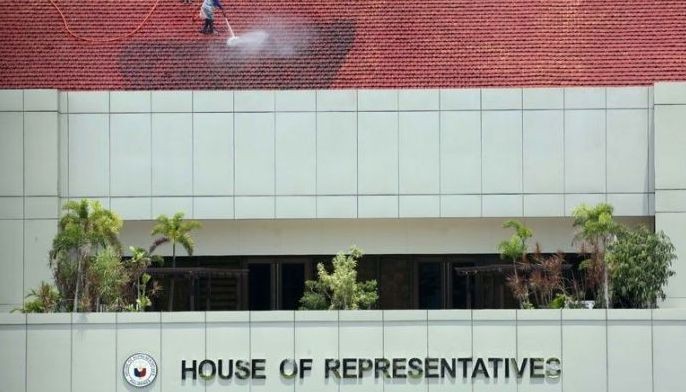MANILA, Philippines — The House of Representatives has passed the bill setting public rules and protocols for the “new normal” in workplace and public spaces while the country continues to battle the COVID-19 crisis.
A total of 242 members voted unanimously in plenary Monday evening to approve on third and final reading House Bill No. 6864 or the proposed Better Normal for the Workplace, Communities and Public Spaces Act of 2020 filed by Speaker Alan Peter Cayetano and other House leaders.
Majority Leader Martin Romuladez, one of the principal authors of the bill, said the measure is crucial to preventing the spread of the disease as the nation prepares for a “new normal” way of living after the community quarantine measures currently being enforced by the government.
“We seek to lay the groundwork that will expedite our people’s adaptation to the demands of the new normal. The soonest we adapt, businesses can resume operations and workers can go back to their jobs without fear of contracting the dreaded coronavirus,” the Leyte representative stressed.
Another proponent, Deputy Speaker LRay Villafuerte, said the proposed law will “help attune the nation to the new norms of life amid the continuing health risk posed by COVID-19 in the months or years ahead.”
Deputy Speaker Loren Legarda, also an author of the bill, said: “This measure will help improve our policies and actions in the context of the pandemic, ranging from health, environment, education, agriculture, labor and industrial sector, tourism, arts and culture and how we can all adapt and adjust to the current situation of our society. This will be an effective guide for us as we transition to a better normal and lead safe and healthy lives in light of this ongoing pandemic.”
The other authors of the bill were Deputy Speaker Paolo Duterte; committee chairmen Eric Yap of appropriations, Jose Antonio Sy-Alvarado of good government and Mike Defensor of public accounts.
HB 6864 seeks to set new norms of physical distancing and safety measures in government and private offices, schools, commercial establishments and other public spaces once social and economic activities resume.
It sets “standards and protocols that would simultaneously protect the vulnerable from the disease and prevent transmission from asymptomatic or untested carriers of the virus, while ensuring the restoration of livelihood opportunities and sources of income for all.”
The proposed measure seeks mandatory wearing of masks, availability of handwashing or sanitizing stations in public areas, temperature checks and physical distancing of at least one meter in all public spaces.
Under the bill, physical distancing will apply during queuing for tickets and in the interiors of vehicles in public transportation, while contactless payment mechanisms will be implemented and passengers will be required to wash their hands or sanitize before boarding public utility vehicles (PUVs).
The operation of motorcycle taxis will remain suspended to prevent the spread of the virus through the use of common helmets and close contact between drivers and their passengers.
For schools and other learning institutions, on-site classes, sports and other extracurricular activities shall also remain suspended subject to consultation with the Department of Education and the Commission on Higher Education.
Online learning platforms will, in the meantime, be the primary mode of learning for students in all public and private schools.
Restaurants and other food service places may resume operations under a “new normal,” but initially only for take-out and delivery.
As for banks, supermarkets, malls and most commercial spaces, the entry of people will be limited at any given time, and online transactions and shopping services as well as cashless and contactless payments should be encouraged.
Salons, parlors and spas – once allowed to reopen – will be required to strictly observe frequent handwashing, disinfecting and cleaning practices, including the sanitizing of scissors and other tools.
Applicable safety and distancing measures must be applied at construction sites, industrial workplaces, offices, call centers and other public spaces.
HB 6864 also promotes online transactions, contactless payments and services as well as full implementation of the law on the establishment of a national ID system along with the national broadband program of the Department of Information and Communications Technology as well as the proposed bill on e-government systems.


